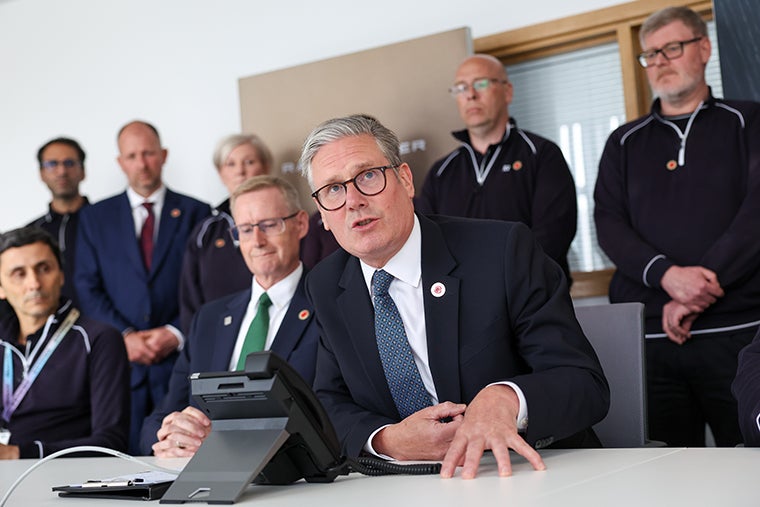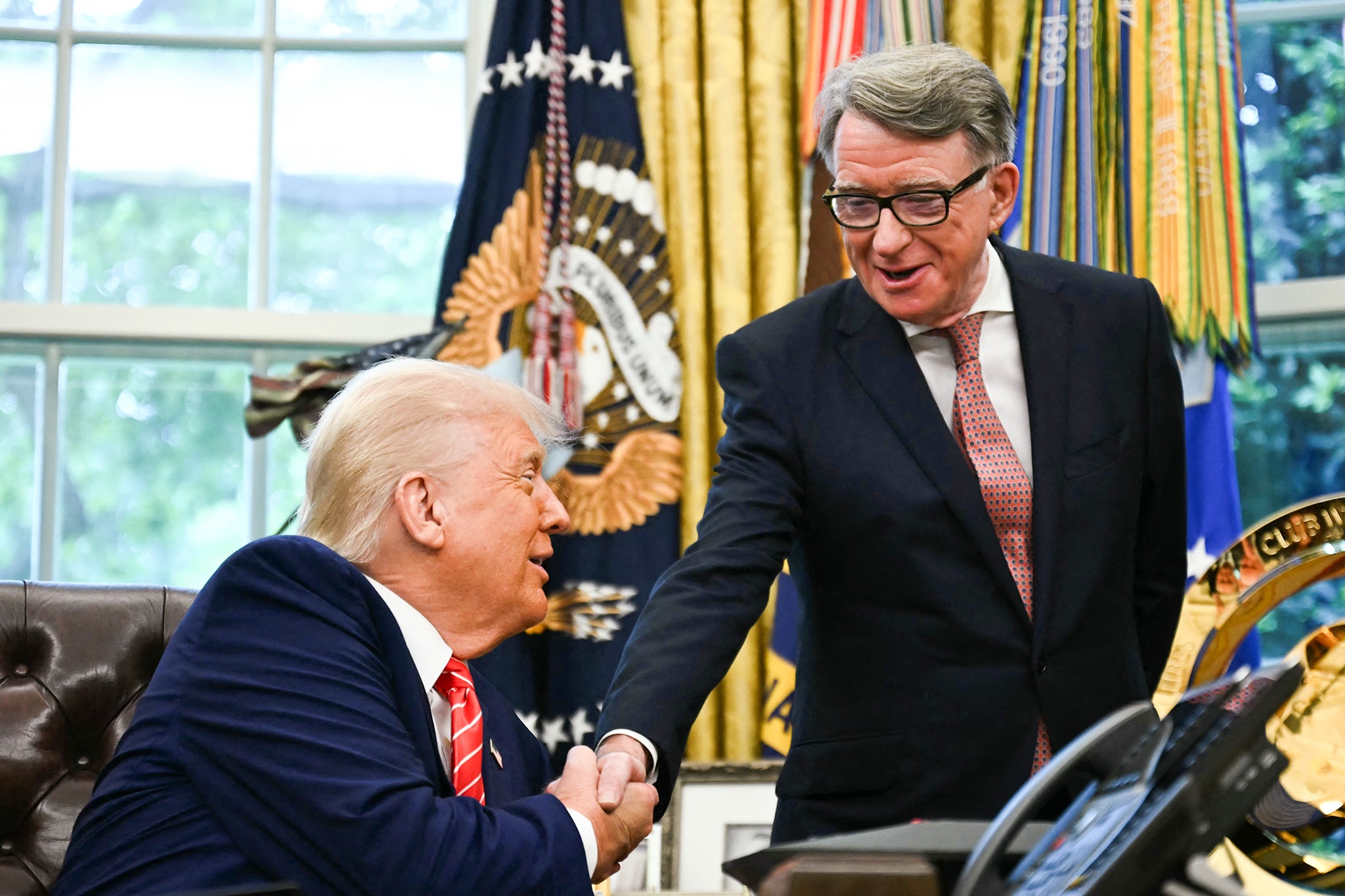ARTICLE AD BOX
More than a month after Donald Trump set the global economy on fire to rebalance America’s trade relationship with the entire world, the self-proclaimed master negotiator has finally struck his first deal.
Given that the entire premise of Trump’s tariff gambit was that countries were “taking advantage” of the United States, it might come as a surprise that his first agreement was with one of the few countries with which the U.S. has a trade surplus.
The president did not let that small detail spoil the celebration.
“We have a big economic security blanket, and that's very important, and we feel very, very comfortable with that, because it's been a great ally, truly one of our great allies,” Trump said at the White House, announcing the tentative deal with the United Kingdom.
“It’s very conclusive and we think everyone’s going to be happy,” Trump said. “Many countries want to make a deal, and many countries are very unhappy that we happened to choose this one.”
In truth, this deal was perhaps the lowest-hanging fruit for Trump’s team of financial honey badgers — eager, energetic, and destructive as they are. A bargain basement deal. The last deal at the dance.
Besides striking an agreement with the penguins of Heard Island, who are still suffering under a punishing tariff regime, a deal with the U.K. was always likely to be simplest.
That’s because the U.K. has been desperate for a U.S. trade agreement since leaving the European Union in 2020, and Trump has been desperate for a deal with anyone since Liberation Day, and especially since his team raised the prospect of making “90 deals in 90 days” in the wake of his tariff rollout.
Here were two countries that had scorned their old economic partners, for one reason or another, and were in search of new ones.

Therefore it was in the interest of both leaders to talk up the significance of this rather pedestrian deal to their domestic audiences.
Dialing in to the White House on speakerphone, British Prime Minister Keir Starmer was careful not to overstate the occasion when he compared the greater availability of American beef for British consumers to the defeat of Nazi Germany.
“You may or may not know, but it was about this time of day exactly 80 years ago that Winston Churchill announced victory in Europe,” Starmer said, invoking one of Trump’s favorite historical figures.
The call continued with a deluge of flattery, showering Trump in compliments as a grandmother might dote on a favorite grandchild.
Starmer praised Trump’s singular leadership for striking a deal that would remove tariffs on British steel, but keep a general 10 percent tariff on all other goods, even as analysts were quick to point out that the agreement would leave Britain slightly worse off than it was before Trump’s tariff adventure.
“This is going to boost trade between and across our countries,” Starmer said. “Donald, thank you so much.”
Commerce Secretary Howard Lutnick, never wanting to be outdone by anyone in bootlicking, not even the prime minister of Britain, also made sure that Trump got credit for the deal.
“He's the closer. He gets deals done that we could never get done because he understands business. He understands deals,” he said of Trump.
Trump, meanwhile, was in full car salesman mode as he tried to pitch citizens on both sides of the Atlantic on the benefits of the deal. In economic parlance, he was putting lipstick on a pig.
Surrounded by his trade advisors and British emissaries, he was asked by a reporter if both sides were in danger of over hyping the agreement.
“I think that it's a great deal for both parties,” he said. “I didn't know how closed it was, quite closed, the market, as you know, the UK, and it opens up a tremendous market for us. And it works out very well, very well. And a lot of assets. You see the chart, and those are tremendous assets, but we've been trying.”

Hazy on the details, Trump and his team seemed to flip between describing the U.K. as a crucial and powerful trading ally and some kind of closed-off hermit kingdom.
"It's opening up the country that we really didn't have the kind of access to,” the president said of America’s eleventh-largest trading partner (the U.S. is Britain’s largest trading partner).
There was good news and bad news for British consumers. On the one hand, they might now be given greater access to American beef, American cars and American ethanol. But Trump also threatened to dispatch the deadly Robert F. Kennedy Jr.
“As you know, Bobby Kennedy is doing a tremendous job, and he's, I think, probably heading toward your system with no chemical, no this, no that, I think we're heading that way," Trump said in response to a question about food standards.
With a recession looming, imports flagging and inflation knocking at the door, Trump needs more than one deal to reverse the damage done by his Liberation Day.
But he promised that more deals were just around the corner — crucially, perhaps, with China.
“We have numerous deals,” Trump said, unconvincingly.
“We can all play games. Who made the first call, who didn't make them, doesn't matter. It only matters what happens in that room. But I will tell you that China very much wants to make a deal. We'll see how that works out,” the president continued, indicating very strongly that he made the first call.









 English (US) ·
English (US) ·